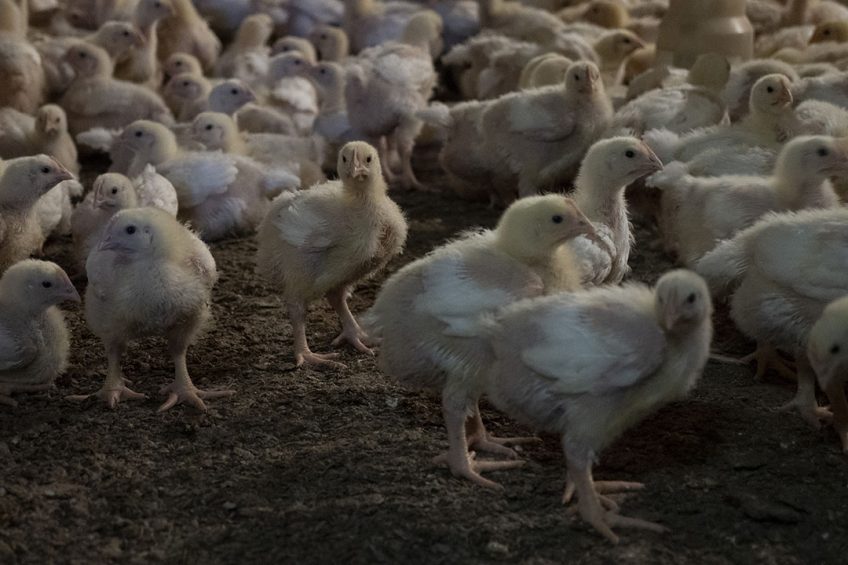Protecting broilers from heart failure

Heart issues in fast-growing broiler chickens might be linked to how their genes respond to epigenetic factors.
Research at the University of Saskatchewan identifies misfolded and damaged proteins building up in the heart, a first step in understanding and improving the health and welfare of broiler chickens.
Heart pump failure in broilers costs US$ 1 billion p.a.
More chickens are raised worldwide than any other livestock animal, so improving their health outcomes would have a big impact. The broiler chickens that are raised for meat were genetically selected to grow extremely fast, but they often suffer from heart diseases. Heart pump failure is a major health and welfare issue for the broiler chicken industry worldwide. Globally, economic losses associated with heart failure problems in broiler chickens amount to more than $ 1 billion annually.
 Controlling Sudden Death Syndrome via feed strategies
Controlling Sudden Death Syndrome via feed strategies
Sudden Death Syndrome (SDS) is a problem that has been observed in many countries where other major poultry diseases have been brought under control. Smart feeding strategies can limit SDS incidence and damage.
Understanding fast-growing chickens and heart problems
To understand why fast-growing broiler chickens suffer from heart problems, Olkowski and collaborators compared them with their slower-growing broiler counterparts, which have a much lower risk of heart failure, and with Leghorn chickens, which are resistant to heart failure. “I couldn’t see obvious changes that could explain heart pump failure under the microscope, so I thought, maybe it’s some more subtle problem with the heart muscle proteins themselves that is not apparent on light microscopy. When we looked at that using infrared micro-spectroscopy, it was fairly immediately obvious,” says Olkowski.
![]() Check out the Poultry Health Tool
Check out the Poultry Health Tool
With the latest insights on the 40+ most common poultry diseases.
Using the Mid-IR beamline at the Canadian Light Source at the University of Saskatchewan, it was possible to identify misfolded and damaged proteins building up in the heart. “The synchrotron allows you to see the conformational changes in the proteins, and we hypothesised that the changes we observed must have a physiological impact on heart pump function,” says Olkowski. Further analyses revealed that the chickens had a hard time disposing of these misfolded proteins aggregates, with knock-on health effects eventually leading to health failure.
Broilers genetic response
The team’s results, which were published recently in Avian Pathology, suggest that heart issues in fast-growing broiler chickens might be linked to how their genes respond to epigenetic factors, like nutrition and their environment. Olkowski will continue to study poultry health and primary causes for disease, which could improve the health of millions of chickens.













